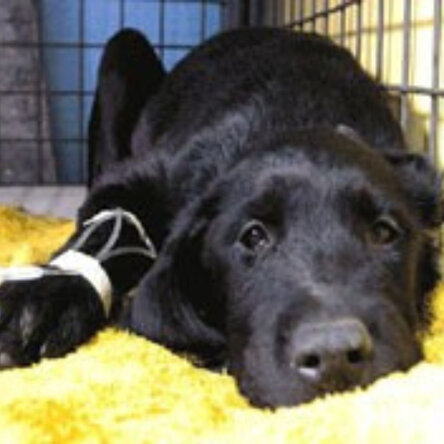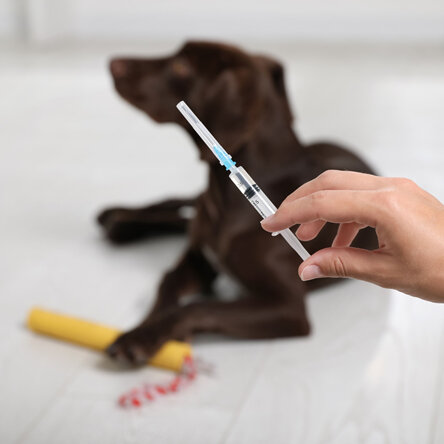Franklin Vets
Franklin Vets - excellence in veterinary care for dairy, farming, lifestyle, equine and household pets. BESTPRACTICE ACCREDITED NZ.

If your dog has symptoms of parvo, we can run a test run on its poo to check for Parvo. It is like the home test that we use to check for COVID and usually takes about 15 minutes to run.
Proper treatment of parvo requires intensive care over several days (typically 4-7 days). This may require hospitalisation at the clinic if your pet is very sick. At times it may be appropriate for daily visits where medications and fluids are provided to you in the carpark, however, very sick dogs need to stay in our hospital. A vet will make an assessment and advise you which treatment options are suitable for your pet.
Without proper treatment, most dogs with parvo (>90%) will die. Treatment is intensive and includes medication to manage vomiting, IV fluids to maintain hydration and antibiotics to prevent bacterial infections.
If your dog is hospitalised, it will need to be kept in our isolation room, in order not to infect other dogs in the clinic. Unfortunately, we cannot allow owners to visit dogs in the isolation unit.
Treatment is expensive and takes place over several days. Be prepared for up 5-7 days of treatment and substantial expense. Intensive care is needed to treat this infection.

We require payment for treatment in advance. If you cannot afford treatment, please discuss this with the veterinarian who has assessed your pet - we are here to help and advise you. The welfare of your pet is our priority.
Vaccination is highly effective in preventing parvo. We cannot rid parvovirus from the environment - it can live for years on properties and in public spaces. Keeping your dog on your property is not an effective prevention because parvo can be carried in on your shoes and if your dog wanders the streets, it will encounter the virus. A dog who is not properly vaccinated or receives no vaccines is EXTREMELY likely to become infected at some point.
Puppies need vaccines every 3-4 weeks, starting at 8 weeks of age until they are at least 4 months old. A booster is given at 15 months old.
If you have concerns about another dog or puppy on your property, please ask us whether we can vaccinate them.
Any space that has been exposed to parvo (through vomit and faeces) should have all contaminated material (like towels and sheets) thrown away and surfaces that can be cleaned should be disinfected with bleach with a 1-part bleach to 30-parts water mixture. Puppies and older, unvaccinated dogs should be kept away from environments that may have been exposed to parvo.
No – Parvo only infects dogs; people are not at risk of catching it. However, there are other causes of diarrhoea in dogs that can be passed to people so it is important to wash your hands after handling any dog that has vomiting and/or diarrhoea.